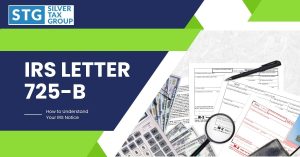Tax time can be hair-raising for freelancers. In addition to having to hustle to pay the rent, the self-employed deal with taxes that are far more complicated than your average W-2 employee. There were an estimated 59 million freelancers in the U.S. in 2020, or 36% of the U.S. workforce, all of whom must annually balance making a living and not getting fleeced by the IRS every April.
Freelancers, independent contractors, and every other type of self-employed taxpayer knows just how challenging it can be to keep track of your finances throughout the year and report them accurately on a tax return. This is all made more of a struggle when you have to pay quarterly taxes on top of submitting your annual return. The tax rules for the self-employed are supposed to make it easier for you to make a living as a small business, but they only work if you know how to use the deductions, credits, and benefits you’re entitled to.
It is hard to be an expert on taxes when you’ve got to be an expert in your own field to make a living. This guide will help explain freelance taxes to make your tax time a little easier, what self-employment taxes are, frequently asked questions around them, and how to file your taxes as a freelancer.

What Are Self-Employment Taxes?
Self-employment taxes are different from regular W-2 employee taxes. Self-employed individuals are generally operating as a sole proprietorship, partnership, or sometimes a limited liability corporation (LLC) or other business type that earns an income directly for the tax filer.
Most self-employed taxpayers have to pay quarterly estimated taxes in addition to filing their annual tax returns. Self-employed workers must also pay the self-employment tax on top of income tax to cover Social Security and Medicare tax obligations. The current self-employment tax rate is 15.3% (12.4% for Social Security and 2.9% for Medicare).
If you earned $400 or more from self-employment in a year, you need to report this as self-employment income.

3 FAQs About Freelance Work Taxes
There are two ways to pay yourself as a small business owner or independent contractor: salary or draw.
- The Salary Method This means you pay yourself a salary out of your small business and count yourself as an employee. You will still have to pay self-employment taxes for the business on top of your W-2 form.
- The Draw Method This is simply paying yourself from what you make and filing solely as self-employed. It is the most common method because it is used by pass-through entities, such as sole proprietors, partnerships, LLCs, and some S corporations. You will need to pay quarterly taxes with this method and should set some more money aside that you will likely owe with your tax return.
Working with a qualified tax professional can help you make certain you are handling these processes properly, thereby avoiding an IRS audit down the road.
The IRS requires freelancers and other self-employed taxpayers who expect to owe $1,000 or more on their annual return to pay estimated quarterly taxes. Estimated taxes are due in April, June, September, and January, and you can use Form 1040-ES, Estimated Tax for Individuals, to figure out what to pay. You can send your completed Form 1040-ES and payment by mail, or you can pay online in just a few minutes through the IRS payments page.
It can be challenging to keep track of all the financial details you will need for taxes throughout the year when you’re a freelancer. That is part of the package when you don’t have an employer with an accountant and tax lawyers doing it for you, and it may be a good reason to look into professional tax help yourself. You will need to gather the same information whether you’re filing for yourself or going to a tax attorney. Here are the basic documents you need before filing your annual tax return.
- Basic Information - You will need your basic contact information and Social Security number. If you have an Employer Identification Number (EIN) with the IRS for your business, you will use this on your tax return. You will also need to know exactly how much income you made from freelancing. It can be helpful to track this throughout the year using software like QuickBooks or on a spreadsheet.
- Form 1099 - Compile your 1099 forms, which should be sent to you by the companies you worked for. These forms summarize your earnings and will help you report everything accurately. You may not always receive a Form 1099 from your clients, but you still need to report the income.
-
Receipts - Gather all business expense receipts. Business expenses are any costs associated with your business, which we will discuss more later.
It is a good idea to begin organizing these basic documents and collecting them from the first day of the year so you’re not scrambling at tax time. The following steps for filing your annual tax return as an independent contractor will be a lot easier with a little planning and preparation.

How to File Freelance Taxes on Your Annual Return
Reserve plenty of time to prepare and review your taxes after you’ve gathered all of your documents and forms. There are many moving parts, so it’s worth considering working with a tax professional. If you have a lot of receipts, invoices, and other records of income and expenses, make sure you know how to avoid common tax return mistakes.
Here is what you’ll need to file to ensure you get the best outcome.
1. Calculate Your Revenue
All income you received from clients must be counted as revenue. Any amount of money you received that goes toward your business, whether you received a 1099 or not, should be counted as revenue. You will only pay taxes on your profit – your revenue minus expenses – which we’ll detail below.
2. Calculate Your Expenses
Any money you spend toward the business should be counted as a business expense since you’re an independent contractor. You may find there are more potential write-offs than you expected, depending on your industry, which is a good reason to talk to a tax professional who knows how to get the most out of your deductions.
Common business expenses that you may be able to write off include:
Sometimes your vehicle may be a crucial part of your business. If so, you can deduct car expenses. Be sure to track your mileage — the per-mile rate for 2020 is 57.5 cents for business miles driven. You can also write off vehicle loan interest, sales tax if it was purchased, registration fees, maintenance, and more.

Common Mistakes to Avoid
1. Missing Quarterly Payments
One of the most common mistakes freelancers make is missing quarterly estimated tax payments. You will have to pay a penalty to the IRS if you fail to report freelance income throughout the year. Think of quarterly taxes as equivalent to your employer taking out taxes from your paychecks. It is wise to set aside a certain percentage of your income from each paycheck so you’re prepared to cover these expenses.
2. False Information
3. Missing Deductions or Credits
Make sure you know everything you can write off on your taxes so you aren’t paying more than you need to. There is a range of deductions and credits available to small businesses and self-employed individuals, so talk to a tax expert to make sure you get every benefit available to you.
Also, be sure that everything you write off or report is correct to avoid an audit or penalties. Make sure you understand all expenses that are eligible to write off so you don’t include costs that will be red flags to the IRS. This is an area where working with a tax pro can help you balance between only paying the taxes you need to and avoiding trouble down the road.
4. Not Getting the Right Help
Tracking your income and expenses throughout the year doesn’t have to take a lot of time. There are apps and programs you can use to help ensure accuracy. There are also apps you can use to track vehicle mileage based on your location, and apps that will automatically categorize your transactions. This is a great way to keep tabs on which expenses were personal and which were for the business.
You don’t necessarily need to use these apps and platforms if you have a reliable method to record receipts and expenses. Try strategies like tracking expenses and income using a spreadsheet or taking photos of all of your business expense receipts.
Independent contractors have lots of work flexibility, but it may take a bit more time to manage and prepare your taxes. Being diligent is crucial so you do everything correctly and efficiently and save money where possible.

Find Answers to All Your Freelance Tax Questions
This overview will get you started in preparing your taxes and making quarterly payments as a freelancer. You may need additional assistance if you are unsure which deductions you qualify for, or which expenses you can write off.
No matter how much preparation you do, there is always a chance of something going wrong that could eventually lead to an audit. If the IRS audits you because of a mistake on your tax return, or if you need defense, talk to a tax attorney right away to discuss your options.
At Silver Tax Group, we know that filing your self-employed taxes can be frustrating, confusing, and even risky. Reach out today with questions related to your freelance taxes or other tax consulting needs.








